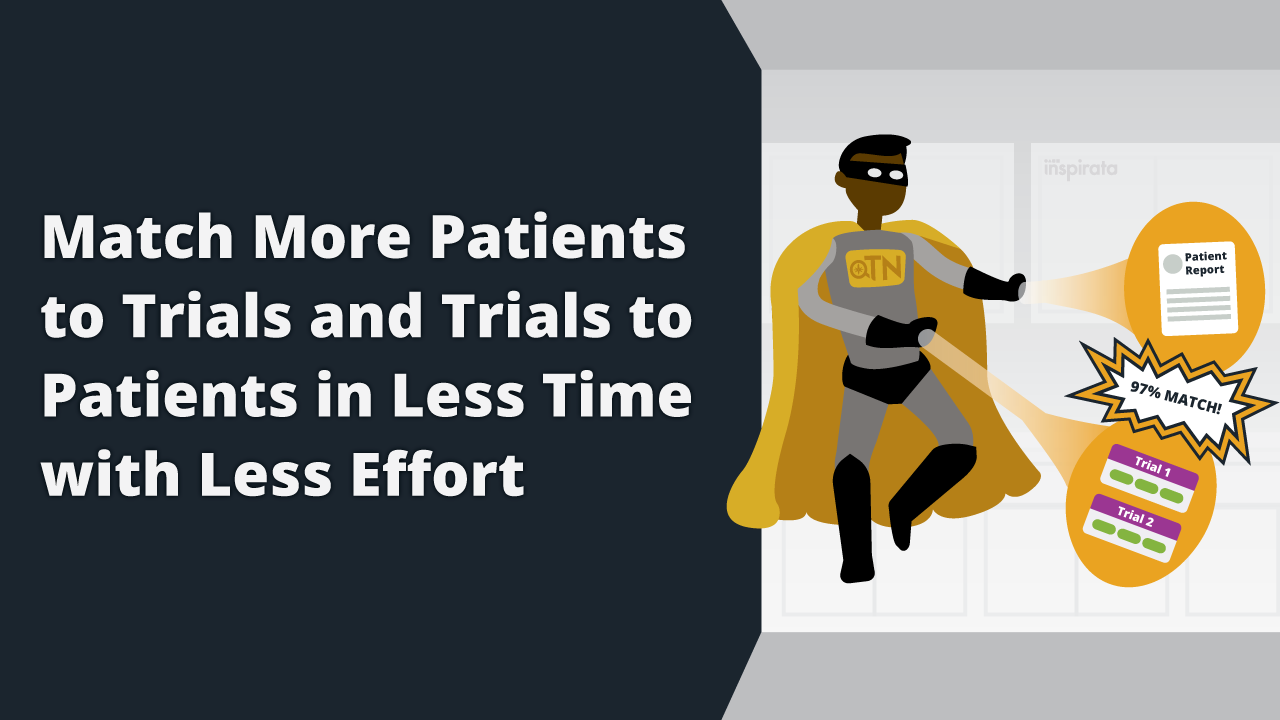Achieving accrual targets for oncology clinical trials has always been a significant challenge, but more recently, it seems to be a task best suited to superheroes. Advances in cancer care and the improvements made possible by precision medicine have had a downstream effect of introducing even more complexity into clinical trials.
Layered onto this complexity in executing oncology trials are the demands on the clinical trials office staff, who are critical to the high-quality management of a clinical trial portfolio. Most leaders of oncology clinical research programs face chronic staffing challenges, especially among Clinical Research Coordinator (CRC) teams. Academic sites are well known for serving as the training ground for CRCs to develop highly specialized skills, only to be recruited by pharmaceutical sponsors or Clinical Research Organizations (CROs) who can offer more lucrative salaries. The Great Resignation has hit these sites especially hard, leaving unprecedented numbers of vacant positions in its wake.
One of the most resource-intensive responsibilities for clinical trials office staff is the identification of appropriate patients to match the clinical trials that are open for enrollment. Each disease group may have their own variation on the process depending on engagement from physicians and others on the clinical team, but most often, pre-screening is a very tedious and manual process. Thirty years ago, I was pre-screening patients by scouring clinic schedules for new patients and then digging through paper charts to assess whatever information I could find so that I could put a sticky note on the chart to remind the physician of a potential trial. Today, most CRCs are doing the exact same thing, except they are scouring an electronic health record for all the information they can find and sending a text or email to the physician as a prompt to discuss relevant clinical trials with the patient during the visit.
Due to the complexity of oncology clinical trials, the pre-screening process often requires a highly trained clinical trials office staff member to be directly involved to properly interpret both the patient’s clinical information and protocol criteria. Because of the Great Resignation, many experienced CRCs and Clinical Research Nurses (CRNs) have been replaced with less experienced staff members who will need time to develop the skillset required to efficiently navigate the complexities of identifying appropriate patients for clinical trials.
Technology simply must be part of the solution to this problem if we have any hope of improving our track record for clinical trial enrollment. Missed targets for clinical trial accrual mean longer delays until there is an answer to important clinical questions that will ultimately benefit patients.
Inspirata’s clinical trial matching solution is built to support clinical trials office staff exactly where it counts the most – in identifying patients for clinical trials. The power of our engine is in its sophistication and flexibility. Evolving advances in cancer care require corresponding advances in Artificial Intelligence (AI) and Natural Language Processing (NLP). Inspirata’s engine is continually changing to meet those requirements.
Organizations supporting a robust oncology clinical research program face a myriad of obstacles. The right kind of technology solution in the right place is a game changer. There is nothing more demoralizing than for an entire team of dedicated professionals to pour resources into opening promising clinical trials only to see them fail to accrue. Resources are limited, and important questions need to be answered for our patients. A clinical trial matching tool can help us all get there sooner and enable clinical trials office staff to have more time to spend with patients. That’s a win-win.

